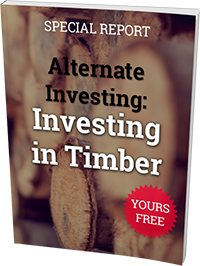You may have heard of the “10,000 hour rule.”
It goes something like this….
Across all fields of human endeavor, it takes about 10,000 hours of “deliberate practice” to master a skill.
Whether it’s speaking French, playing a musical instrument or becoming an NFL linebacker, you need to put in about 20 hours a week, over a 10-year period, to rise to the top of your profession.
That’s why Olympic athletes and musical prodigies need to get such an early start.
This idea isn’t new.
I first read about this around a decade ago in the context of a broader rule of thumb. It takes 1,000 hours of intensive study to become “competent” at a skill; 5,000 hours to be able to teach it to others; and 10,000 hours to “master” it.
True “virtuosos” put in about 20,000 hours — roughly 20 years of intense commitment and practice.
The conclusion is cheerfully democratic, if daunting. As long as you put in your 10,000 hours, you too can become a “master” at any field you choose.
Sadly, this conclusion is also just plain wrong.
Unlike mastering a violin or becoming a world-class Brazilian jiu-jitsu practitioner, the 10,000 hour rule does not readily apply to the world of investing.
My Own Journey through 10,000 Hours
A few years ago, I tallied up the hours I had put into mastering the basics of investing.
And between my study for various formal qualifications and my work as a portfolio manager, I tallied up 10,000 hours quite easily.
Yet there were two things that struck me.
First, the least useful part of my experience — the hours I couldn’t in good conscience count toward my 10,000 hours of “mastery” — were the hours spent as a mutual fund manager.
Too much of my time was frittered away with meetings and activities that had nothing to do with investment analysis. Little of my time met the standard of “deliberate practice.”
Second, I also found that none of the effort I had put into learning my “craft” mattered — or even was appreciated — at the mutual fund company where I worked at the time.
The top investment manager I sat next to — a high school dropout who literally had worked himself up from the mailroom and had such limited writing skills that he could barely draft his own quarterly reports — dismissed my autodidactic efforts with a word too rude to repeat in print.
And judging by those who have been extraordinarily successful on Wall Street, he was right.
Investing as an Extreme Sport
Here’s the conclusion I have come to…
The 10,000 hour rule may apply in the world of sports and musical instruments.
But it does not apply in the world of blockbuster movies, best-selling books or investment management on Wall Street.
In his bestseller “The Black Swan,” Nassim Nicholas Taleb refers to these two types of worlds as “Mediocristan” and “Extremistan.”
“Mediocristan” is the world of lawyers and dentists. Learn your craft, and you will make a good living. But there are only so many hours you can bill, and only so many cavities you can fill. You can become “comfortable” but never “rich.”
“Extremistan” is the world of Internet entrepreneurs, hedge-fund managers and politicians. In business, an Internet entrepreneur like Mark Cuban can make more money selling broadcast.com to Yahoo than a thousand partners at New York law firms make in a lifetime.
In politics, an affable but obscure state lawmaker earning $60,000 a year in 2003, plus $32,000 as a lowly instructor at the University of Chicago Law School, can become President of the United States five years later.
Wall Street and financial markets are the very incarnation of “Extremistan.”
And your experience and smarts on Wall Street and in politics don’t really matter all that much.
Consider the experience of Michael Lewis, outlined in his essay “The End“:
“To this day, the willingness of a Wall Street investment bank to pay me hundreds of thousands of dollars to dispense investment advice to grownups remains a mystery to me. I was 24 years old, with no experience of, or particular interest in, guessing which stocks and bonds would rise and which would fall…. Believe me when I tell you that I hadn’t the first clue.
“I’d never taken an accounting course, never run a business, never even had savings of my own to manage. I stumbled into a job at Salomon Brothers in 1985 and stumbled out much richer three years later, and even though I wrote a book about the experience, the whole thing still strikes me as preposterous….”
Comfortably ensconced in the world of Extremistan, financial markets are the most democratic playing field in the world. They allow slick-talking high school dropouts to triumph over Harvard MBAs.
This is not the case, say, with mastering a sport.
Just because you can pick up a golf club doesn’t give you the right to step onto the golf course with Tiger Woods.
Yet in the financial markets, your bets are placed right alongside those of Warren Buffett and George Soros.
And here’s what’s amazing: on any day, you can actually do better than the greatest investors ever. It’s the world of instant gratification.
No 10,000 hours of “deliberate practice” are required….
Contrast that with your chances of playing Paganini like this 11-year-old the first time someone puts a violin in your hand.
This also means that unlike in sports or music, true talent in investing — if it exists — is almost impossible to spot.
Consider the following thought experiment.
Start with 10,000 mutual fund managers. After Year One, 5,000 managers (by definition) perform better than average.
After Year Two, that number falls to 2,500. After 10 years, 20 fund managers have astonishing 10-year track records. They start creeping on to the covers of financial magazines, and are regularly invited onto CNBC.
After 15 years, you end up with a single manager who has a breathtaking, 15-year record of performing better than any of his other competitors.
In the United States, this mutual fund manager has a name: Bill Miller, of Legg Mason. His Legg Mason Value Trust outperformed the S&P 500 index for 15 straight years until 2005.
That means that Bill Miller’s track record lasted just about as long as you would have expected.
Put another way, if it weren’t Bill Miller who had had that 15-year track record, by mathematical necessity it would have been someone else.
And today, Miller’s fund trails 96% of its peers over the past 10 years and 93% over the past 15, according to Russel Kinnel, director of mutual fund research at Morningstar. Bill Miller still doesn’t admit that he was at least as lucky as he was smart.
The bottom line?
As much as the 10,000 hour rule applies to surgeons and NFL wide receivers, it simply doesn’t hold water in the world of investing.
If you really want to get rich quick in investing, it’s better to be lucky than smart.
In case you missed it, I encourage you to read my Global Guru column from last week where I tell you why you should ignore the recent stock market rout. I also invite you to comment in the space provided below.



